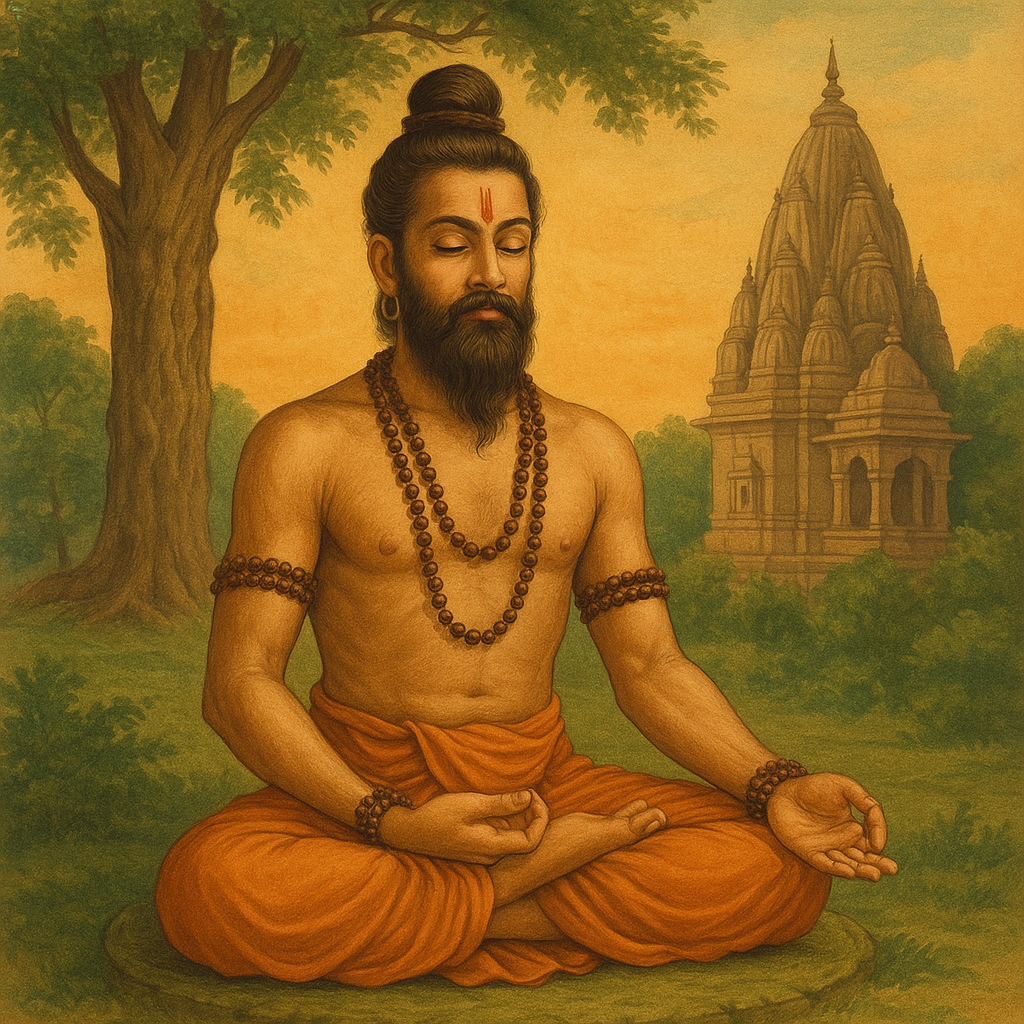Why are Yoga and Meditation considered important in Hinduism?
Hinduism is not limited to rituals and worship alone; rather, it is a complete science of living. It emphasizes the balance of body, mind, and soul. Yoga and Meditation are two significant practices in Hindu philosophy, aimed at making a person physically, mentally, and spiritually healthy. Even in the modern fast-paced world, these practices provide peace and balance to human life.
The Meaning and Importance of Yoga
The word Yoga comes from the Sanskrit root ‘Yuj’, which means to join or to unite. The ultimate goal of Yoga is the union of the individual soul (Atman) with the Supreme Soul (Paramatma). In Patanjali’s Yoga Sutras, Yoga is defined as:
“Yogashchitta-vritti-nirodhah” – Yoga is the cessation of the fluctuations of the mind.
Types of Yoga described in Hinduism:
Karma Yoga: Performing actions selflessly without attachment to the results.
Bhakti Yoga: Devotion and surrender to God.
Jnana Yoga: Attaining liberation through knowledge of the soul and Brahman.
Raja Yoga: Self-control through meditation and spiritual practices.
Yoga is not confined to physical postures (asanas) alone; it is a way of disciplined living. Through Yoga, the body becomes healthy, the mind becomes calm, and the soul becomes purified.
The Importance of Meditation
Meditation (Dhyana) means focusing the mind and attaining stillness. Through meditation, one connects with their inner consciousness. In the Upanishads and the Bhagavad Gita, meditation is described as the most effective path to self-realization.
Benefits of Meditation:
Brings mental peace and freedom from stress.
Improves concentration and memory.
Develops self-control and positive thinking.
Leads to deep spiritual experience and self-knowledge.
In the Bhagavad Gita, Lord Krishna tells Arjuna:
“A yogi is greater than ascetics, greater than scholars, and greater than those who perform rituals. Therefore, become a yogi.”
This highlights that Yoga and Meditation can elevate a person to the highest level of existence.
The Interrelation of Yoga and Meditation
Yoga and Meditation are deeply interconnected:
Yoga purifies the body and mind.
Meditation focuses the mind and connects the soul with the Supreme.
When practiced together, they bring complete balance and inner bliss.
Relevance in Modern Life
In today’s stressful and fast-moving lifestyle, the need for Yoga and Meditation has increased even more.
Physical ailments like obesity, diabetes, high blood pressure, and heart disease can be managed through Yoga.
Mental health issues like anxiety, stress, and depression can be reduced through Meditation.
Spiritually, these practices guide a person towards self-knowledge and the true purpose of life.
In Hinduism, Yoga and Meditation are not just spiritual practices but a holistic way of living. They teach us that true happiness does not lie in external possessions, but within ourselves. Yoga purifies the body and mind, while Meditation brings the experience of the soul’s union with the Supreme. This is why Yoga and Meditation are not only revered in India but are now embraced across the world as a means to achieve balance, peace, and fulfillment in life.
- Religion World Bureau










